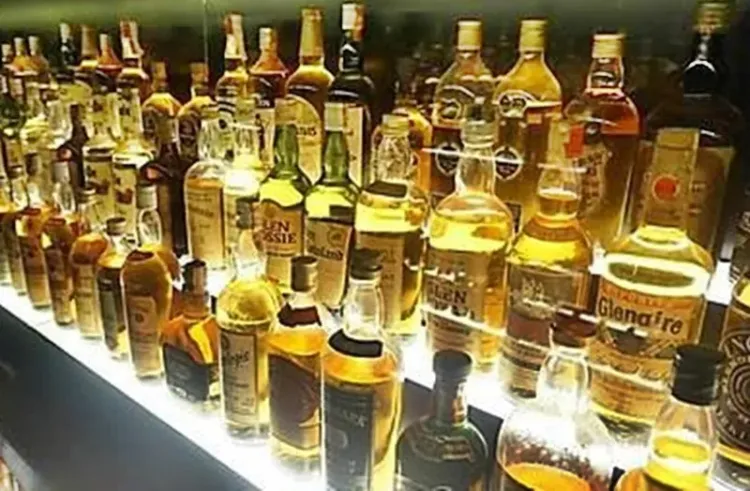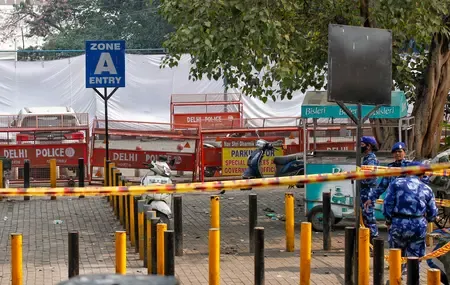CAG Raises Alarm on Barcode Authentication Failures in Delhi's Liquor Distribution; Leads to Rs 24.23 Crore Loss

Synopsis
Key Takeaways
- Financial discrepancies in the ESCIMS have resulted in significant losses.
- The CAG report highlights improper payments for unverified liquor sales.
- Barcode authentication failures have led to a Rs 24.23 crore loss.
- The Delhi government’s defense of payments lacks proper justification.
- Contractual terms were violated in the payment process.
New Delhi, Feb 25 (NationPress) A report from the Comptroller and Auditor General (CAG) has highlighted serious financial discrepancies in the Excise Supply Chain Information Management System (ESCIMS), uncovering that an improper advantage of Rs 24.23 crore was granted to the implementing agency (IA).
The report, named Performance Audit Report on Regulation and Supply of Liquor in Delhi, was submitted to the Delhi Assembly on Monday.
The audit reveals that payments were issued for liquor bottles that lacked proper barcode verification at the Point of Sale (POS). The findings indicate that the implementing agency profited from this undue advantage between December 2013 and November 2022, according to the report.
In February 2010, the Delhi Cabinet made a decision to implement barcoding for all liquor sold in the city to combat smuggling and enhance traceability. The ESCIMS project, which was initiated through a bidding process, was responsible for managing barcoding of liquor, inventory oversight, and payment solutions for all stakeholders involved.
According to the contract, the implementing agency was entitled to payments solely for barcodes verified at the POS during transactions. However, the audit revealed that, between December 2013 and November 2022, barcode verification reached Rs 65.88 crore, while the actual payment obligation was Rs 90.11 crore.
This discrepancy of Rs 24.23 crore arose from payments for bottles classified as sold through a “stock-take-sold” method, meaning without adequate barcode verification at the POS.
The CAG report additionally pointed out that, despite inadequate barcode scanning, a Departmental Committee proposed ad-hoc payments to the implementing agency for the initial three months, including for unverified stock. The Finance Department subsequently approved these payments without resolving the issues identified.
In April 2015, the Excise Department requested the opinion of the Finance Department again, leading to an order for barcode data reconciliation. However, the report indicated that this reconciliation was poorly executed, and payments persisted.
The report also highlighted that these payments contravened the contractual conditions stipulated in Schedule VI of the Master Services Agreement, which explicitly required barcode data to be authenticated through POS sales, damage, or expiration prior to any payment processing.
The audit concluded that the disbursement of payments for un-scanned bottles was inconsistent with the contract terms, culminating in an unwarranted advantage to the implementing agency.
While the Delhi government defended the payments, claiming they were based on “data captured” in the system, the CAG dismissed this justification, confirming that the payments were issued without appropriate verification, breaching the agreed-upon terms.









